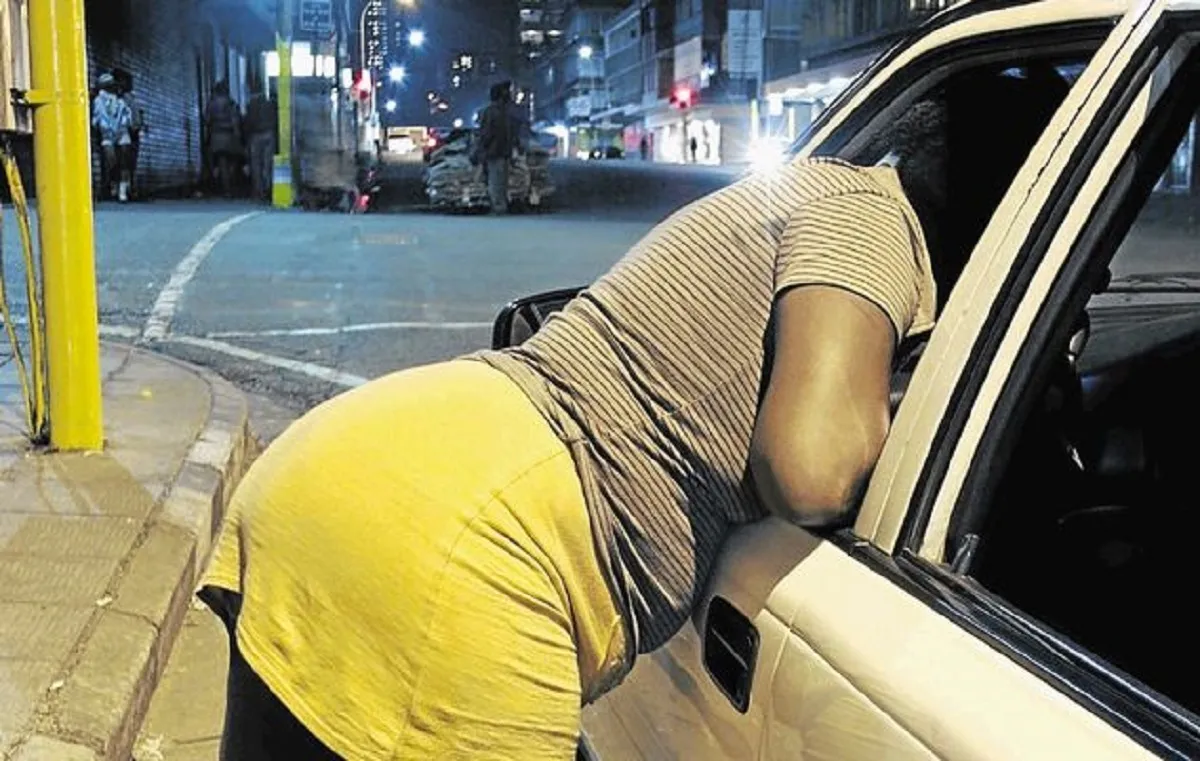Organizations working to safeguard the rights of youth, girls, and women have raised concerns over the increasing number of underage girls engaging in thigh vending work as a means of survival.
These organizations are calling for urgent and collaborative efforts to address this issue, which is severely affecting the lives of these children.
Areas such as Hopley, Mabvuku, and Epworth in Harare, as well as Chitungwiza and Domboshava, are among the places where girls as young as 14 are engaging in thigh vending, sometimes with men over the age of 50.
In some cases, these young girls are reportedly paid as little as one US dollar for engaging in thigh vending activities.
Primrose Manyange, a young woman from Hopley, shared her perspective with Studio 7 on what might be pushing young girls in her community into thigh vending work.
“Many of these girls have no other options, and some of them already have children to take care of. They see thigh vending as a way to survive. In some cases, even parents encourage this through their words and actions. We cannot say these girls lack awareness because the government and independent organizations often conduct awareness campaigns on self-protection among the youth,” she explained.
Another young woman, Marble Jamu from Domboshava, said parents are also playing a role in pushing children into thigh vending.
“Adults often say, ‘Like mother, like daughter.’ When parents engage in behaviors that resemble thigh vending, children imitate what they see. If parents kept such behavior away from their children, it would help,” she said.
Norbert Kuvamudiki, a youth worker with the Female Students Network Trust, believes poverty is the main driver of this problem.
“People are struggling to make ends meet in this country, and it pushes girls in these areas to see thigh vending as a way to survive. When they try to sell goods in town, municipal police chase them away, leaving them with no other way to earn money for food. Sadly, some of these children are very young, but they already have children of their own,” he explained.
The Girls and Women Empowerment Network noted in its research that young girls often resort to thigh vending due to a lack of proper guidance and support in their households.
Kumbirai Kahiya, the head of the organization, said young girls engaging in thigh vending are often coerced into it rather than making a choice.
“Remember that our Constitution states that no child under the age of 18 can consent to thigh vending activity, meaning that anyone who engages in thigh vending activity with them is committing abuse.
Legally, this is equivalent to rape. However, when you speak to these children, they say they have no options at home and are seeking ways to survive, which leads them into thigh vending,” she explained.
Engineer Francis Gondo, a business development expert with the women’s affairs ministry, encouraged young girls and women to take advantage of legitimate opportunities provided by the government to improve their lives.
“Our government has many initiatives for women, including training on starting businesses and providing funds for these businesses. Such opportunities allow girls and women to earn a living through their own efforts,” he said.
Ekenia Chifamba, an expert on youth issues and the head of Shamwari Yemwanasikana, emphasized the need for collaborative action to end child thigh vending.
“We need to start within families to ensure children are protected, especially those with parents living abroad. To the men engaging in thigh vending activities with these children, I urge you to stop this harmful practice and treat these children as your own daughters, sisters, or nieces. Let’s abandon harmful cultural practices that encourage children to sell their bodies. Religious institutions also need to spread messages encouraging children to protect themselves,” she said.
The Zimbabwe Gender Commission noted that child thigh vending is not limited to urban areas but also occurs in mining areas with artisanal miners and along major highways frequented by truck drivers.
Girls engaging in thigh vending work often contract sexually transmitted infections, experience unplanned pregnancies, or fail to receive the money promised by their clients.
A report released in 2022 by the Association of Child Protection Professionals highlighted several reasons why these young girls turn to thigh vending, with hunger being the primary factor. The report also noted that while this issue predominantly affects girls, some boys are also engaging in thigh vending work.
Other factors pushing children into thigh vending include taking on family responsibilities after losing parents and being manipulated or coerced by adults.
For comments, Feedback and Opinions do get in touch with our editor on WhatsApp: +44 7949 297606.

For comments, Feedback and Opinions do get in touch with our editor on WhatsApp: +44 7949 297606.


